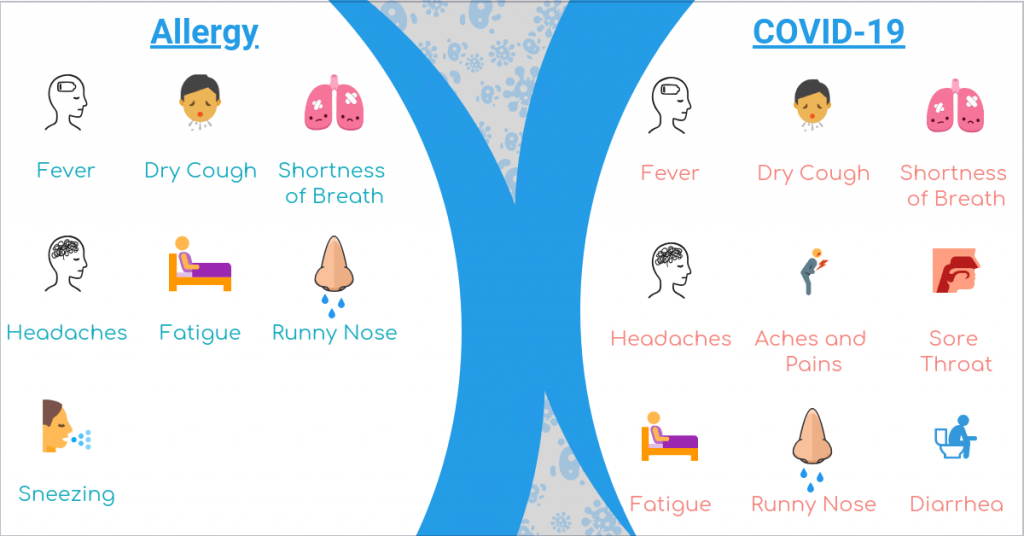Put yourself in this scenario: You’re casually pushing your cart through the grocery store when you encounter a fellow shopper in the canned goods aisle. You subconsciously size them up and decide that they look healthy enough.
Right as you pass them, they let out an enormous sneeze. You instinctively run for cover, trying to evade droplets’ spray, forgetting whatever it was you needed to get.
It turns out they only had allergies.
The fear of contracting coronavirus has changed our daily perceptions of others. There is some crossover of symptoms between something noncontagious, like allergies, and with COVID-19 and some misinformation. We’re here to help clear things up.
Symptoms of the Coronavirus
There are telltale symptoms of COVID-19, but the most significant are fever, dry cough, and fatigue. A few other signs are telling as well, such as difficulty breathing and a sore throat.
Not everything is known about this virus, and we’re learning more every day, but these three main symptoms are what you need to be on the lookout for.

Allergies: Similar yet Different
Many with seasonal allergies are accustomed to their reaction to pollen. There are a handful of similar symptoms shared between allergies and COVID-19, like coughing, headache, fatigue; however, there are symptoms that are unique to allergies, like watery and itchy eyes, congestion, and sneezing.
If you’re experiencing different symptoms from your seasonal allergies, give us a call or click here to schedule a telemedicine appointment.
Everybody is different and reacts differently to allergens, and even the coronavirus. We’re finding out new things about COVID-19, but nobody knows your body better than you do.
Be mindful of what your body is trying to tell you, including keeping tabs on where you go and where you’ve been. Remember, you can carry the virus asymptotically, or without showing symptoms, so it’s essential to follow proper protocol to avoid spreading the virus to others.





















